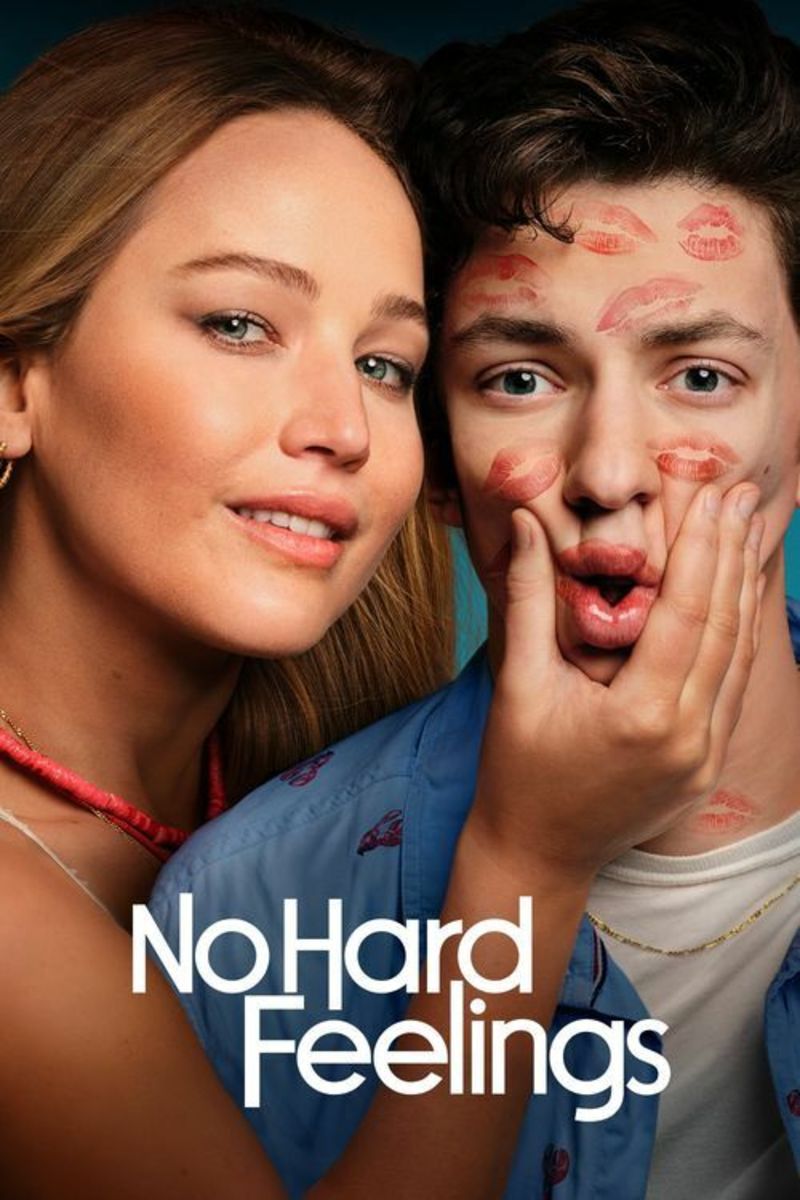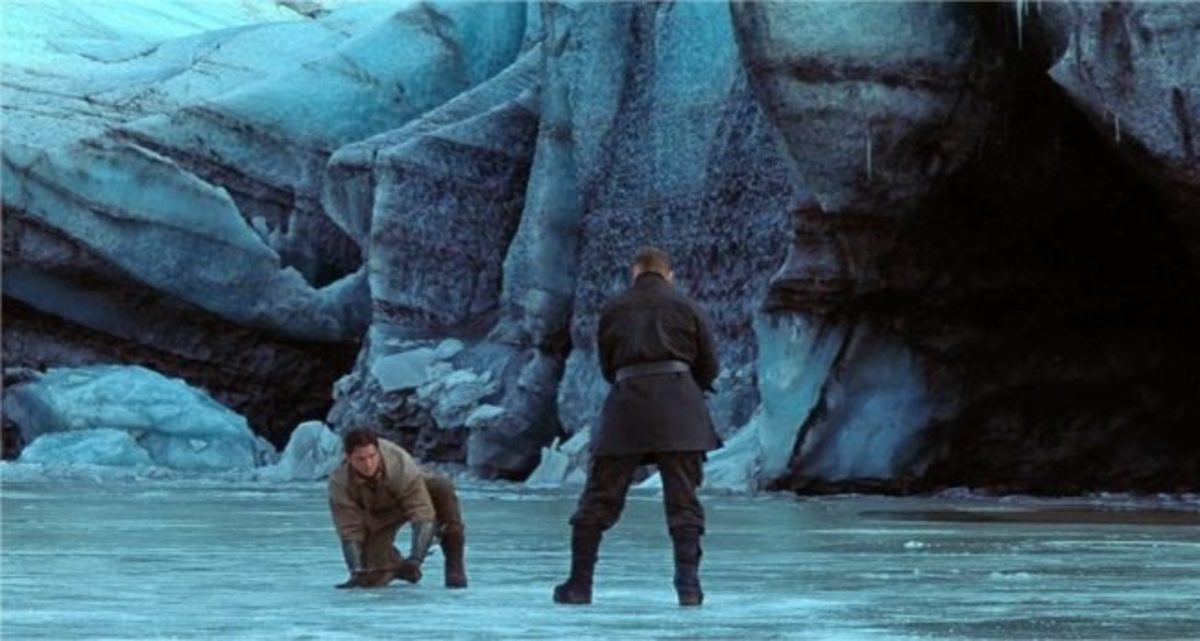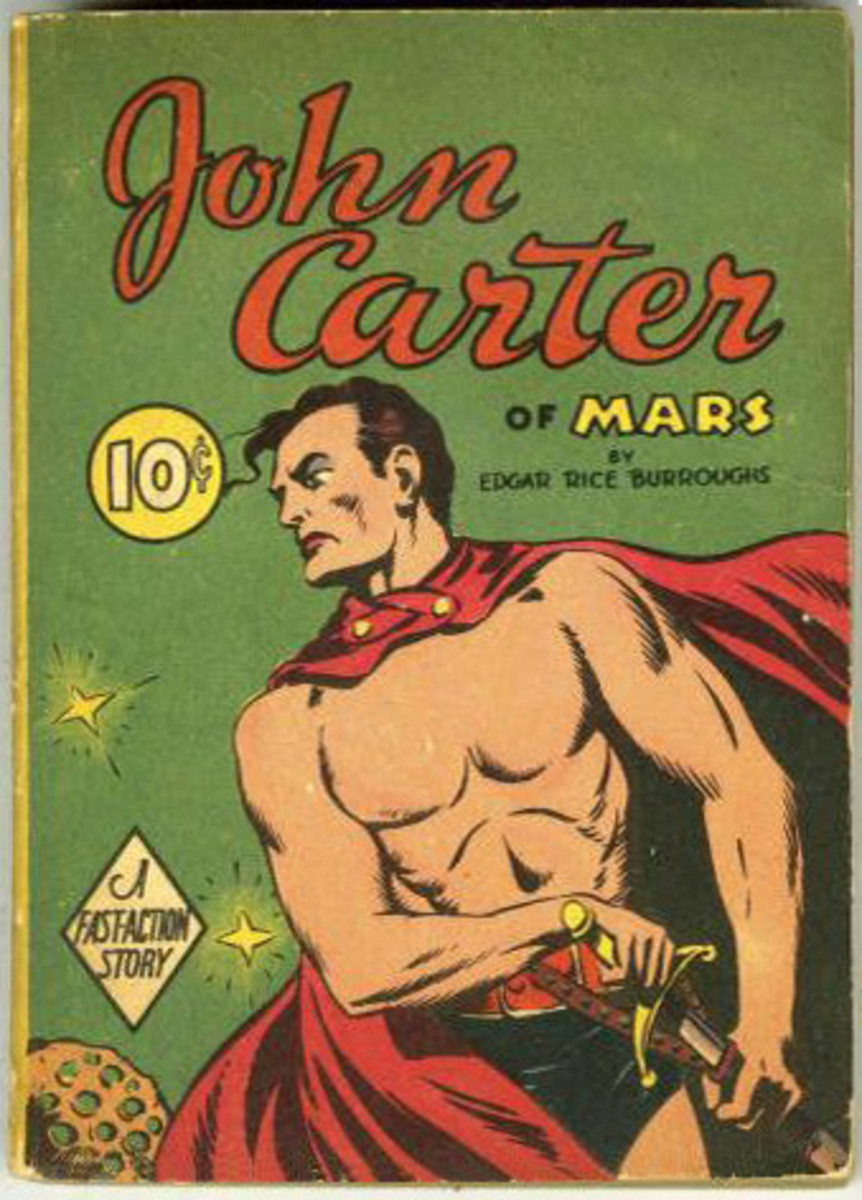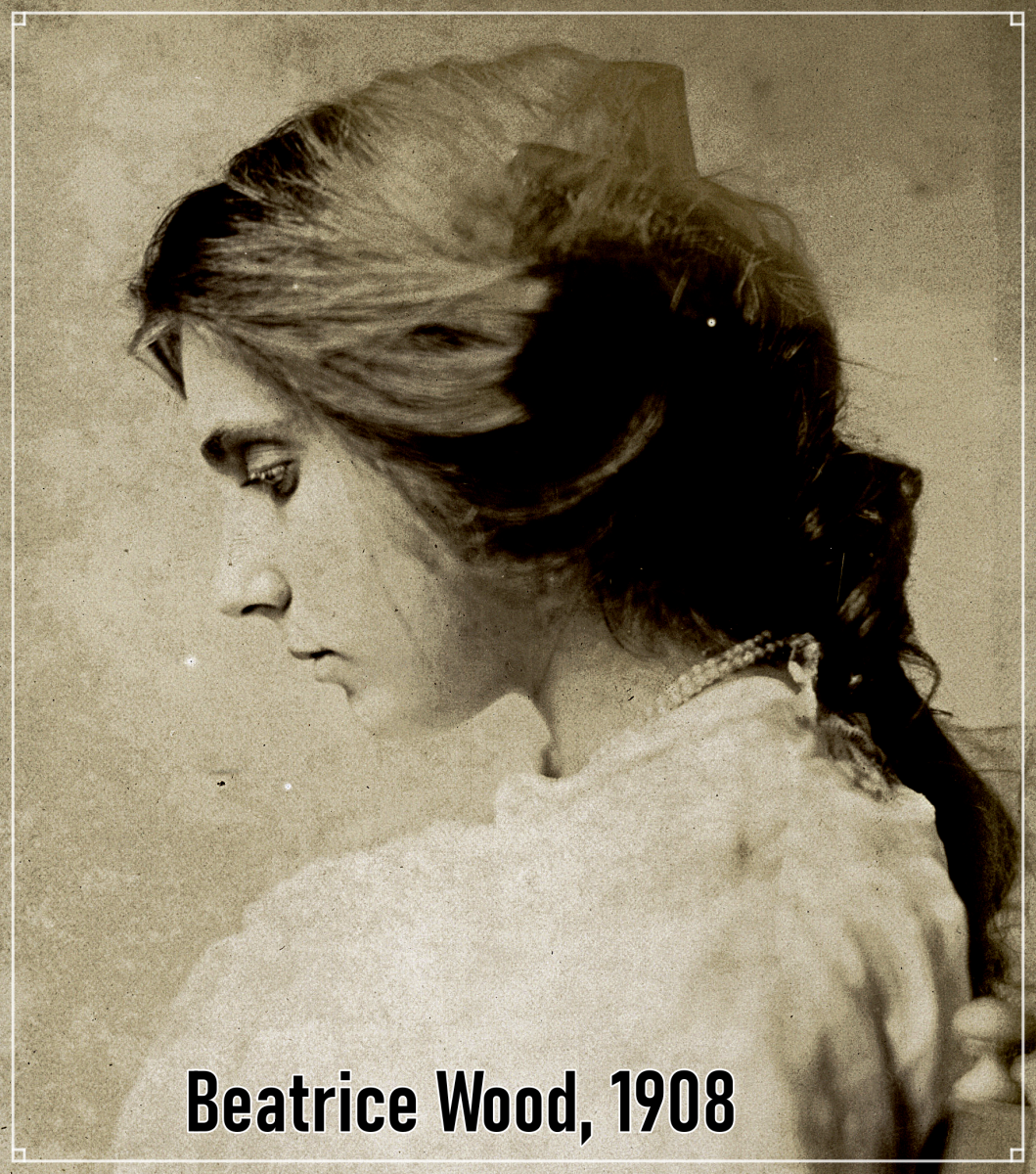12 Ambiguous Movie Endings
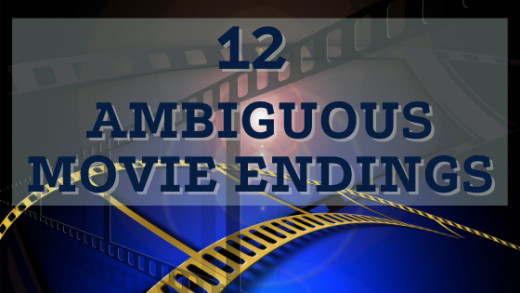
Do you prefer ambiguous movie endings?
Choose your own ending
For me, a movie doesn’t end after I finish watching it. I like to pick them apart and speculate on the open-ended questions left behind in some plots. There are plenty of stories out there with, “choose your own ending” moments. Whether these are unintentional plot holes or conscious, trusting decisions made by the filmmakers, they make for great discussion topics without leaving the story feeling empty or unfinished.
Below are several cliffhanger moments that have occurred in some of my favorite movies. There are SPOILERS ahead, even though these movies are several years old.
Titanic ending
1. Titanic: Is Rose dead or just dreaming?
Synopsis
This film ends with our fictional hero, Rose, now an old woman in bed with her eyes closed. The camera then fades back to the historical sunken ship that we've watched sink over the past hour suddenly regenerates before our eyes. Rose is 17-years-old again and meets up with everyone who perished on the ship, including Jack. There, she is able to get her happy ending.
Analysis
Rose is 100 years old and just had a cathartic moment (throwing overboard the diamond necklace that she had kept for 84 years). When I was younger, I never questioned the ending. I was sure that Rose had died at the end of the movie.
However, I later learned that some people believed that the final scene was all a dream brought on by her reminiscing about her time on board the ship. This is why she is younger and also why she has abandoned the life that she built for herself post-Titanic in the afterlife to spend eternity with a person and in a place that she knew for only a few days.
Reason for the ending
On the DVD commentary, writer and director James Cameron says that he prefers to leave this question unanswered so that the viewer can be left with the ending of their choice. For those who prefer cold hard answers, this can be a tough pill to swallow, but then again, so would hearing an answer that contradicts your own theory.
Pirates of the Caribbean: Dead Man's Chest kraken scene
2. Pirates of the Caribbean: Dead Man's Chest: In which direction is Jack’s compass pointing during the Kraken attack? Towards the ship or towards the island?
Synopsis
In a climactic moment, Jack abandons his ship in order to save himself from the Kraken. On his way to land, Jack stops rowing his lifeboat and guiltily checks his compass to see what he should do. The direction on the compass is not shown, but the look on Jack’s face is a puzzled one.
Analysis
Jacks’ mind is constantly changing throughout the movie, making his compass useless. When faced with the decision to save himself or his friends, he habitually whips out the compass looking for an answer.
Elizabeth previously preached to Jack about his underlying willingness to do the right thing. Is his puzzled reaction to his compass a confirmation of her faith in him? Is the compass pointing towards the ship, or does he consciously know that he wants to save his friends and is puzzled that the compass is pointing towards land, towards his own salvation?
Another possibility is that his compass is spinning around as per usual, and he has no one but himself to decide what to do. Either way, Jack heads back towards the ship where he saves his friends but doesn't save himself.
Reason for the decision
To prove that sometimes it doesn't matter what you want, sometimes you have to act against impulse. Or, you may surprise yourself with what you really want deep down.
The Village movie trailer
3. The Village: Does Lucius survive?
Synopsis
In the final scene of the movie, Ivy returns from the towns with the medicines needed to save her fiancé, Lucius. She kneels at his bedside to tell him that she’s back, and then the credits roll. So what happens next? Do the medicines work, or does Lucius succumb to his injuries?
Analysis
What is more important: the love story or the preservation of Covington Woods? It would be really discouraging to learn that Ivy endured all that she did only to have Lucius die from his injuries.
Not only would the love story be destroyed, but the townspeople would have been subjected to the exact evil from which the elders had fled. Lucius' death would be considered murder. The elders' attempts to protect the younger villagers from the evils of the world would have been all for nothing. It would confirm not only that one cannot escape from evil and pain, but evil defeats love.
From a practical perspective, though, Ivy has been given the knowledge that the elders made up the stories about the creatures to keep the villagers from journeying to the towns. Not only is Ivy in the loop now, but she re-acquires her belief in the creatures during her encounter when Noah attacks her in costume while she is on her journey. His death not only removes the evil from the town but reestablishes the elders' stories as truth, allowing Ivy to keep the town going once the elders have all died off.
However, Lucius had spent a good chunk of his scenes begging for permission to visit the towns to acquire medicines. If he does awaken to the knowledge that medicine from the towns saved his life, he will be more willing than ever to return to the towns to acquire more useful items.
This could jeopardize the future of their utopian village. So, perhaps Lucius' death would be in the best interest of the village as a whole.
Reason for the ending
This ending explains that the town's future is rocky, just like Lucius' survival. Enough evidence is presented to hint that Lucius does live, and the discussion between the elders in his sick room presents their plan for continuing on despite the evil that has made its way into their village.
The purpose of the story is not to give two characters a happily ever after but to show how bad things happen to good people, no matter how much they feel they are protected from it. Ivy has learned this lesson and prevailed in her journey while maintaining the privacy of her village, for now. That story was over, and what happens after her return is a completely different story to tell.
Good Will Hunting ending
4. Good Will Hunting: What happens between Will and Skylar?
Synopsis
In the final scene, Will ditches his new job, his friends, and his life to follow Skylar to California in his new car. So, when he gets there, does Skylar take him back?
Analysis
It’s safe to say that Skylar would take him back once Will arrived in California. She practically begged him to come along with her, causing the argument which then caused their breakup. She was also heart broken in their last conversation when he wouldn’t tell her that he loved her before she left. So, she should be thrilled when he comes knocking on her door.
But will it last? Is Will cured of his abandonment issues after just one breakthrough in his sessions with Shawn? Will he stick around, even when the going gets tough? Will he be able to hold down a job and put his genius IQ to good use? Maybe the only way to end the movie happily is to end it where they did, with hope.
Reason for the ending
This is not a romantic comedy. This is a drama about a brilliant but scared kid who is afraid to commit to people due to past abuse and neglect. His therapist keeps telling him that he has to take a chance on people in order to find happiness.
The car driving away at the end gives you that feel-good ending feeling without the sappy reunion in the rain. You don't need to see the result of Will's risk. You just need to see him take the risk.
Forrest Gump: Jenny's grave
5. Forrest Gump: Who is right? Mama or Lieutenant Dan?
Synopsis
At Jenny’s grave, Forrest brings up this question. His whole life, his mother has been saying that he is in control of every decision that he makes whereas Lieutenant Dan preached of having a destiny to fulfill. So, what has led him to this point in his life, and what caused the events that he experienced?
Analysis
Throughout the movie, Forrest seems to stumble on situations in amazing and sometimes comical ways. He has no goal except being with Jenny. Yet, he manages to live an extraordinary life simply by being in the right place at the right time.
Maybe it's just the culmination of his innocence, athleticism, and lack of expectation. However, it could be all planned out for him, and he's just along for the ride like the feather that bookends the film.
Reason for the ending
Forrest speculates that both of them may be right. We may have the power to choose, but our choices lead to predetermined ends.
No matter which philosophy we adopt, we never know if we are right are wrong in what causes our life's choices. Despite your belief system, your life keeps moving forward no matter what, and choice and destiny are merely the ways that you cope with the outcome of every life event.
The Wizard of Oz: It was all a dream.
6. The Wizard of Oz: Is Dorothy dreaming, or did she really go to Oz?
Synopsis
The book and the movie end the same way. Dorothy wakes up in bed with a bump on the head, believing her journey to Oz to have been just a dream. However, did we honestly just go through that giant adventure with Dorothy only to find out that it was all made up in her head?
Analysis
The movie introduces the characters you are going to meet in Oz as real life characters in Dorothy’s life in Kansas. Surely, when they become a scarecrow, a tin man, a lion, a witch and a wizard, it’s just Dorothy’s subconscious world building this fantasy as she lays unconscious in her bed.
The thing is, why would this little girl’s brain make up a fantasy world which ultimately trumps her desire to get out into the world and explore it? Why would her brain make her freak out with images of flying monkeys and haunted forests just to tell her that she should never leave home? Because she visited a world full of magic, magic could have restored her to reality at the moment she left it.
Reason for the ending
The "it was all a dream" ending has become the biggest cop-out that a story can dish out to its audience. However, this ending doesn't take away from Dorothy's adventure. Oz is real on some level, whether it was willed to reality by Dorothy or exists merely inside her head to help her make sense of her world as a mixture of beauty and ugliness, good and evil, friend and foe and everything in between.
TDK: Rachel's death
7. The Dark Knight: What was Rachel trying to say before she died?
Synopsis
Halfway through the film, Rachel Dawes is killed by a bomb after being kidnapped by The Joker’s men. She dies in mid-sentence while trying to disclose some information to Harvey through an intercom system.
We see the explosion go off behind her, and a gust of wind hits her face. Then, we are lead to assume that she is dead.
Rachel's death is imperative in this film in order to trigger Harvey’s descent into madness. Surely, she will pop up in the final frame. Then, she doesn’t. So then surely it will be revealed that she is alive in the sequel. Then, she wasn’t. Instead, she stays dead, and her death becomes the main motivation for why Batman takes seven years off from crime fighting between movies.
Analysis
Something just doesn’t add up here. It is safe to assume that Heath Ledger’s untimely death caused the script for The Dark Knight Rises to be rewritten. In the sequel, The Joker is never even mentioned let alone his crimes. So, the loose ends are never tied up.
That means that whatever Rachel was trying to say to Harvey in her final moments died with Heath as did the hope of bringing her back to life. So, if Rachel was supposed to live, how was she to come back? Maybe as a brainwashed Harley Quinn?
Reason for the ending
It has since been revealed that The Joker's role in The Dark Knight Rises would have been a Hannibal Lecter-type of role. He and Batman would have had a conversation about how to stop Bane from between his prison bars.
Because of this, it's safe to say that he doesn't have Rachel stashed somewhere after seven years. She really is dead, but maybe killing her off in mid-sentence was always the intended purpose to throw the audience for a loop.
The hero always saves the girl, but this one doesn't. She doesn't even make it to the third act. The timing of the explosion is just a perfect illustration of how The Joker's timing is always so unexpected but so unprecise. Rachel is a victim of that timing and his planning.
TDKR ending
8.The Dark Knight Rises: How does Batman survive the explosion made by the bomb?
Synopsis
After flying a nuclear bomb out of the city just before it detonates, Batman is presumed dead along with his alter-ego, Bruce Wayne. However, the audience is surprised to find in the final frames that Batman is not only alive but survived unharmed.
So, how did he do it? Did he eject well before the explosion and let the autopilot take over? Did he have some kind of protective suit?
Analysis
This ending has really irked people according to comments that fans have made online. Normally, this would not be an issue in a superhero movie, but Christopher Nolan’s universe is so concretely based in reality that an explanation for this fantastic feat of survival is practically demanded from its audience.
You can often forget that you are watching a superhero movie in The Dark Knight franchise so it is funny to see everyone explode when the boundaries of that universe are called into question by a classic movie moment. Theories range from using his tech and intellect to being saved by Superman to escape the blast.
Reason for the ending
Simple. He's Batman.
Zodiac ending
9. Zodiac: Who is The Zodiac Killer?
Synopsis
It must have been challenging for the filmmakers to come with an ending to a story about a real life, unsolved serial killing spree. One can only speculate on who was committing these murders. Luckily, they had Robert Graysmith’s book to guide them along with his own theory about The Zodiac Killer’s identity. However, do you buy it? Was it Arthur Leigh Allen committing those murders, or was it someone else?
Analysis
So many pieces of evidence point to this man, and you’ve watched Robert Graysmith’s process in coming up with his suspect. So, you trust his judgment and research.
However, if he was right, why was an arrest never made? Why were other suspects pursued? What did the film leave out that might sway you toward another suspect?
The creepiest thing about this movie is that the real killer got away with these crimes. And the police either let him slip right on by or were so off track that their suspects were accused of murders they did not commit.
Reason for the ending
Without an arrest or confession from the real killer, a Hollywood ending is impossible without distorting the facts of a faithful retelling of the case up to this point. It may not be the neatly packaged, satisfying, catch-the-killer ending, but it follows Graysmith's perspective and research to the same dead end that he arrived at, which is realistic and interesting to ponder to this day.
Inception ending
10. Inception: What’s going on with the spinning top in the final scene?
Synopsis
In the movie, the dream thieves use objects called “totems” to help confirm that they really have woken up from a dream. Cobb spins his wife’s top, and if it continues to spin without stopping, it means that he is still dreaming.
In the final sequence of the movie, the characters all wake up from their dream/mission. Cobb specifically awakens from limbo, a state of consciousness from which it is almost impossible to escape.
When he finally makes it home to see his children, the first thing he does is spin the top to make sure that he is not dreaming. Distracted by the sight of his children, however, he abandons the top to greet them. The top keeps spinning, however, and possibly wobbles before the credits roll.
Analysis
There are so many theories about this movie’s ending that reading them all will make your head want to explode. Some say that Cobb never woke up from his first trip to limbo (before the events of the movie even begin). Some say that he is still trapped in his second trip to limbo. Others say that the top was about to fall before the credits rolled.
Does it even matter as long as he is with his kids, and he is happy? He only really seems to be happy when he is dreaming anyway. Is reality more important than happiness? Maybe showing the top just before it falls confirms that he has reached his dream reunion in reality. Reality has become his dream.
Reason for the ending
A movie about dreams begs for an ambiguous ending. Dreams themselves are ambiguous. Cobb will always question his reality. Why shouldn't the audience question it too?
The ending of Doubt
11. Doubt: Is Father Flynn innocent or guilty?
Synopsis
After much speculation between two nuns and the refusal of a confession from the man himself, Father Flynn is transferred to another parish on the assumption that he is spending too much personal time with one of his students. However, the audience never finds out whether or not he did anything wrong.
Analysis
The point of the movie is its title. While in real life situations it is most important to find out if a crime of this nature has been committed, in this film, the alleged crime itself is immaterial. What is really questioned is whether or not Sister Beauvier was in the right to take action against a priest without evidence.
The cryptic conversations and minimal cold hard evidence presented throughout the film keep pushing and pulling the audience from one side to the other with no actual conclusion except that Sister Beauvier and Sister James do not feel any better about themselves or the situation after Father Flynn has gone.
Without facts, there is no certainty or catharsis to a situation. There is only unjustified guilt. Still, it would be nice for the audience to know whose side you should have been on this whole time so that you don't have to feel as unsettled as the characters.
Reason for the ending
It's such a timely topic. As long as a priest maintains his innocence on this issue, we as a society are forced to question it. That means accusing both the guilty and non-guilty.
This is a story about trust and misuse of power on both ends. It's put together in a mind-numbing puzzle full of clues that point in favor of both sides. Proof of guilt is difficult, and proof of innocence is impossible. So, we are left with our assumptions which can grow to be even more dangerous and affecting than the original accusation.
This movie is about taking a bad situation and making it worse. It's a moral that we can all learn from.
A League of their Own: The World Series ending
12. A League of Their Own: Does Dottie let Kit win The World Series?
Synopsis
In the final out of The World Series, Kit, as weak a batter as she is strong a pitcher, manages to knock a high fastball pitch into the outfield and decides to win the game herself by going for an inside the park home run. Her sister Dottie, arguably the best player in the league, is catching for the opposing team.
As the ball is thrown to home plate, Dottie blocks her sister’s path. There is a collision resulting in Kit sliding into home plate and Dottie dropping the ball.
Little sister Kit is then able to emerge victorious from her older sister’s shadow and obtain the glory that she had been striving for her whole life. Did she earn that glory, or did Dottie gift it to her?
Analysis
The speculation begins during the opening of the movie when Dottie tells her older grandson to let the younger one win a round of their basketball game. She then tells the younger grandson to give it his all. Kit is a weak batter who relies on her pitching to get her into the league.
Dottie is an all around great ballplayer who hides her competitive nature because she thinks that it is more important to be a good wife and wait for her husband to return from war. She is constantly struggling between her love of the game and her devotion to her marriage, despite the fact that she holds no wifely duties while her husband is off at war.
Kit, on the other hand, is desperate for the freedom and respect that playing ball gives her. Ultimately, she wants to win even more than Dottie because she needs it for her own sense of self-worth. However, Dottie can’t help but return to play in the final game of The World Series after quitting when her injured husband returns from war.
When Kit comes up to bat in that pivotal moment, Dottie makes a point of telling her own pitcher that Kit can’t lay off of high fastballs. It seems that she has come to play, but perhaps while Kit was rounding third base, she had a change of heart and gave up the win for her sister. Dottie’s skills just seem too good to mess up when she does. On the other hand, maybe Kit did get over on her for once.
Reason for the ending
To let Kit win would feel like an unearned victory. To have her lose would feel like a final slap in the face, despite the fact that we have been following Dottie's team through the whole movie, making us believe that they were the ones to root for.
So, to mix up the clues that way earns Kit her glory without demeaning Dottie or The Peaches. Still, there is always that lingering doubt that things may have been more planned out than Dottie lets on.
What ambiguous movie endings are your favorite? What do you think about any of the endings mentioned above? Leave your comments below!

